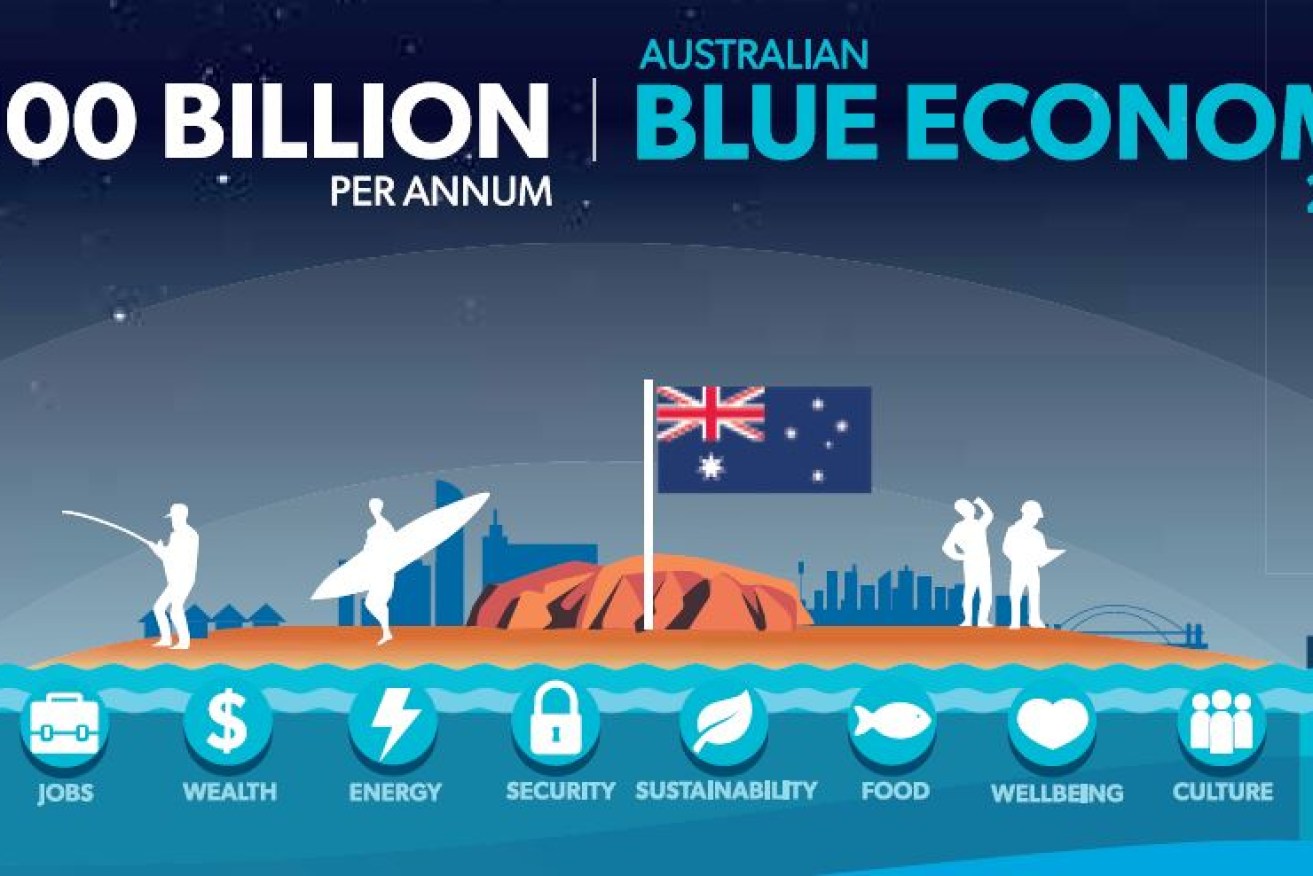
Marine sciences to drive $100bn blue economy

The National Marine Sciences Plan 2015-25 was developed in response to the 2013 position paper Marine Nation 2025: Marine Science to Support Australia’s Blue Economy.
Flinders scientists have contributed to the bold 10-year plan for Australia’s marine economy, which is forecast to grow three times faster than the nation’s gross domestic product over the next decade.
The National Marine Science Plan 2015-2025, which was launched by the Minister for Industry and Science Ian Macfarlane in Canberra this month, forecasts the wide range of coastal and marine industries will add more than $100 billion to the nation’s economy by 2025.
“Australia’s marine sector – already a significant contributor to the nation’s economy – has the potential to provide even greater economic wealth through growth in offshore oil and gas production, renewable energy resources, biotechnology, marine and coastal tourism, fishing and aquaculture,” said Mr John Gunn, the chairman of the National Marine Science Committee which coordinated the plan.
The plan makes a number of recommendations against seven ‘grand challenges’ – marine sovereignty, security and safety; energy security; food security; biodiversity, conservation and ecosystem health; urban coastal environments; climate variability and change; and resource allocation.
Marine biologist Associate Professor Sabine Dittmann, from Flinders’ School of Biological Sciences, is a member of the committee’s executive and has now joined working groups developing facets of the plan, including increased capability and skills, baselines and long-term monitoring, and studies on marine ecosystem processes.
“The investment focus for an Integrated National Experimental Research Facility will be central to realise the plan’s recommendations,” says Associate Professor Dittmann.
Scientists from the Flinders University Centre for Marine Bioproducts Development (CMBD) added their perspectives on marine biodiversity, conservation and ecosystem health and with more than 500 academics and researchers from around Australia.
For the first time, marine biotechnology has formed a major tenet of the plan.
Professor Wei Zhang, CMBD director and president of the Australia New Zealand Marine Biotechnology Society, said biotechnology focus included emphasis on research investment and industry outcomes.
“It is the first National Marine Science Plan to include multiple mention of marine biotechnology and marine bioproducts … which is recognition of Flinders and its leadership in the growth of marine biotechnology research and networks across Australia,” Professor Zhang says.
“We influenced the plan’s focus on technology development, industry, recommendations for a blue economy, and research investment into marine biotechnology.”
The Department of Foreign Affairs and Trade defines the blue economy as “one which strikes the right balance between reaping the economic potential of our oceans with the need to safeguard their longer-term health”.




